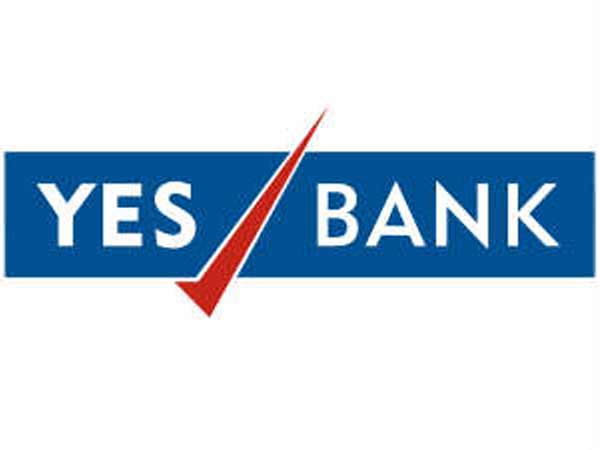Why SBI Equity Mutual Funds?
The long-term goal of SBI Equity Mutual Funds is to maximize capital appreciation. They primarily invest in equities and equity-related securities that have the potential to generate high returns. Due to the inherent volatility of equities investing, the risk quotient of these SBI Mutual Funds ranges from moderate to high. In general, investing in equity funds is preferable if you have a long-term aim (say, five years or more). It will also provide much-needed time for the fund to deal with market swings. These funds can be used as retirement funds, child education, capital appreciation, etc,.
The main concern of investors who are hesitant to acquire stock funds at market highs is that prices will likely decline once the markets have peaked. The Nifty is at all-time highs, and investing in an equities mutual fund is a risky proposition.
SBI Technology Opportunities Fund
SBI Technology Opportunities Fund invests in a diverse portfolio of equity and equity-related instruments in technology and technology-related companies with the goal of providing long-term financial appreciation to investors. The 1-year returns on SBI Technology Opportunities Fund Direct-Growth are 82.96 percent. It has returned an average of 22.78 percent per year since its inception. The top 5 holdings in the fund are in Infosys Ltd., HCL Technologies Ltd., Tata Consultancy Services Ltd., Alphabet Inc Class A, Bharti Airtel Ltd.
SBI Technology Opportunities Fund’s NAV as of June 8, 2021, is 129.5.
SBI Technology Opportunities Fund has a total AUM of 665 crores. The direct plan of SBI Technology Opportunities Fund has an expense ratio of 1.37 percent.
SBI Healthcare Opportunities Fund
SBI Healthcare Opportunities Fund Direct Plan has a 1-year growth rate of 56.69 percent. It has generated an average yearly return of 18.24% since its inception. The top 5 holdings are in Sun Pharmaceutical Inds. Ltd., Dr. Reddy’s Laboratories Ltd., Aurobindo Pharma Ltd., Cipla Ltd., Lupin Ltd. SBI Healthcare Opportunities Fund’s NAV as of June 9, 2021, is 247.51. The direct plan of SBI Healthcare Opportunities Fund has an expense ratio of 1.09 percent. SBI Healthcare Opportunities Fund has an AUM of 1,748 crores. The scheme aims to deliver long-term financial appreciation to investors by investing in a diverse portfolio of equities and equity-related instruments in the healthcare sector.
SBI Banking & Financial Services Fund Direct
This fund has been around for 6 years and 3 months, having been established on February 11, 2015. SBI Banking & Financial Services Fund Direct-Growth has assets under management (AUM) of 2,401 Crores, making it a medium-sized fund in its category. The expense ratio is 0.91 percent, which is lower than most other Sectoral-Banking funds. The fund has the majority of its money invested in Financial sectors.
The 1-year returns on SBI Banking & Financial Services Fund Direct-Growth are 68.38 percent.
SBI Small Cap Fund
The 1-year returns for the SBI Small Cap Fund Direct-Growth are 93.47 percent. It has returned an average of 27.35 percent per year since its inception.
The ability of the SBI Small Cap Fund Direct-Growth scheme to provide consistent returns is comparable to that of most funds in its category. The fund has the maximum invested in Engineering, Chemicals, Cons Durable, Construction, Services sectors. The top 5 holdings are in Elgi Equipments Ltd., JK Cement Ltd, Carborundum Universal Ltd., Navin Fluorine International Ltd., Sheela Foam Ltd.
SBI Focused Equity Fund
The fund’s expense ratio is 0.76 percent, which is lower than the expense ratios charged by most other Focused funds.
SBI Focused Equity Fund Direct Plan has a 1-year growth rate of 55.90 percent. It has had an average yearly return of 16.41% since its inception. The top 5 holdings are in HDFC Bank Ltd., Alphabet Inc Class A, Divi’s Laboratories Ltd., Procter & Gamble Hygiene & Health Care Ltd., Bharti Airtel Ltd. The majority of the money in the fund is invested in the financial, healthcare, fast-moving consumer goods, energy, and technology sectors. SBI Focused Equity Fund has an AUM of 14,767 crores.
SBI Equity Hybrid Fund
SBI Equity Hybrid Fund Direct Plan-Growth has 38,141 Crores AUM, making it a medium-sized fund in its category. The fund’s expense ratio is 0.96 percent, which is comparable to the cost ratios charged by most other Aggressive Hybrid funds. The fund now has a 68.98 percent stock allocation and a 16.60 percent debt exposure.
SBI Equity Hybrid Fund Direct Plan has a 1-year growth rate of 41.41 percent. It has had an average yearly return of 15.82 percent since its inception. The top 5 holdings are in HDFC Bank Ltd., Divi’s Laboratories Ltd., Infosys Ltd., GOI, Bharti Airtel Ltd.
What is an Expense Ratio in Mutual Fund?
The cost ratio is the percentage of your investment that you pay a fund to manage your money each year. Because the expenditure ratio is charged on a monthly basis, a high expense ratio over time could cut into your returns significantly due to compounding. Mutual Funds are allowed to charge certain operating expenses for managing a mutual fund scheme as a percentage of the fund’s daily net assets under the SEBI (Mutual Funds) Regulations, 1996. These expenses include sales & marketing, administrative expenses, transaction costs, investment management fees, registrar fees, custodian fees, and audit fees. The ‘Total Expense Ratio’ (TER) refers to all of these expenditures associated with administering and operating a mutual fund scheme. Every investor should be aware of, monitor, assess, and consider expense ratios when making mutual fund investing decisions. It isn’t the only or even the most significant factor to consider when choosing a fund, but it should be taken into account.
6 Best SBI Equity Mutual Fund SIPs To Invest In 2021 For Capital Appreciation
6 Best SBI Equity Mutual Fund SIPs To Invest In 2021 For Capital Appreciation
| SBI Fund Name |
1-year Return |
3 years Return |
Expense ratio |
| SBI Technology Opportunities Fund |
83.92% |
27.08% |
1.37% |
| SBI Healthcare Opportunities Fund |
56.69% |
27.82% |
1.09% |
| SBI Banking & Financial Services Fund |
68.38% |
15.54% |
0.91% |
| SBI Small Cap Fund |
93.47% |
20.13% |
0.87% |
| SBI Focused Equity Fund |
55.90% |
16.24% |
0.76% |
| SBI Equity Hybrid Fund |
41.41% |
13.90% |
0.96% |












